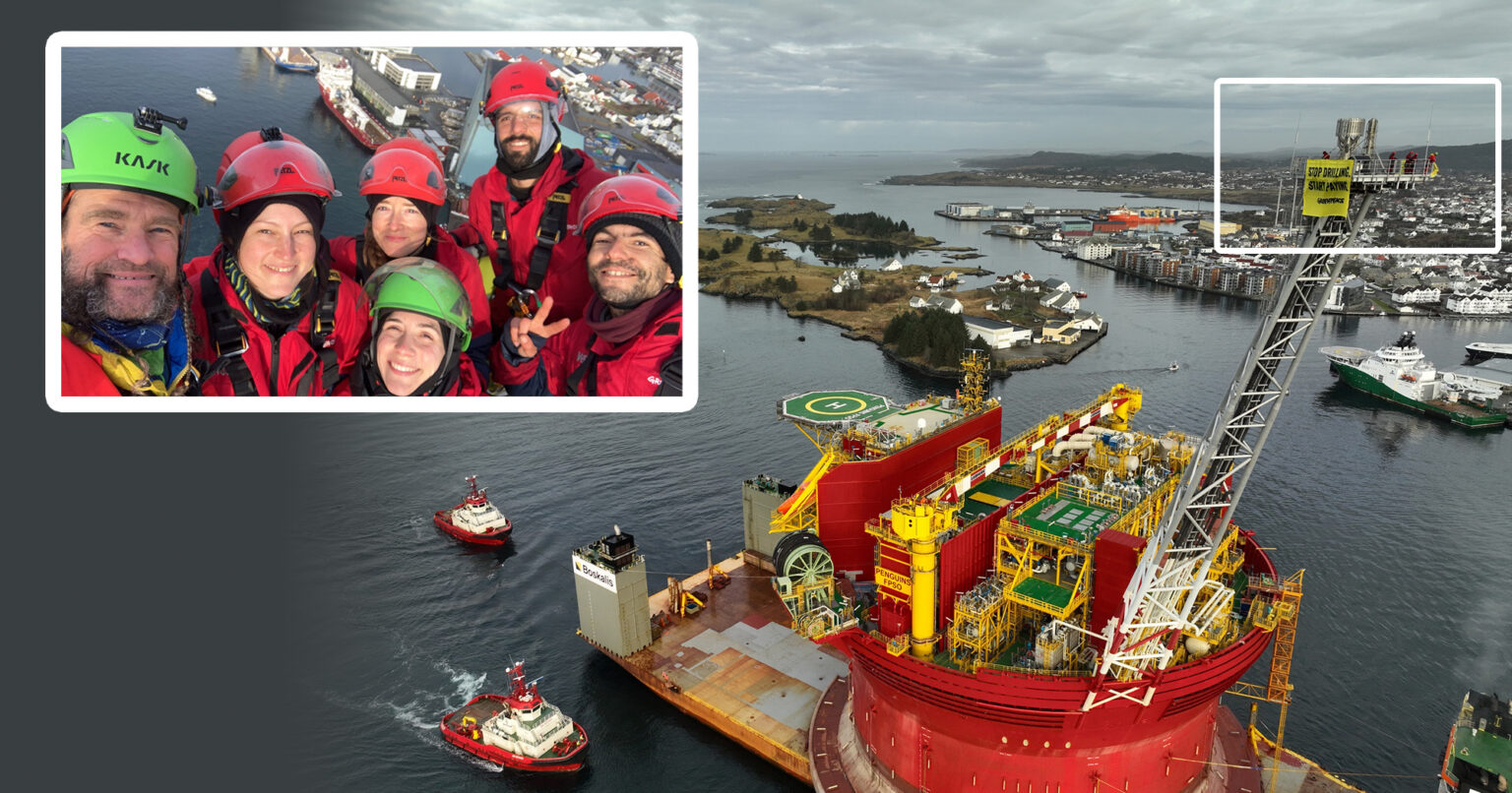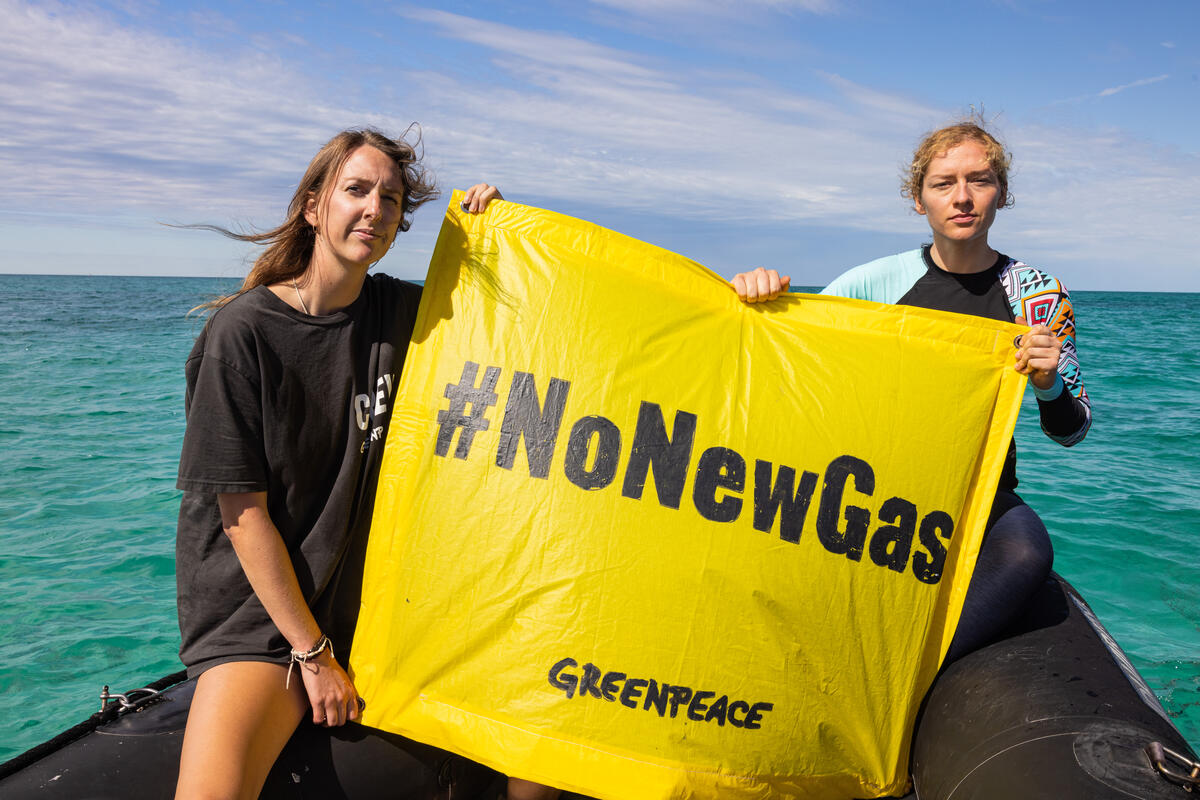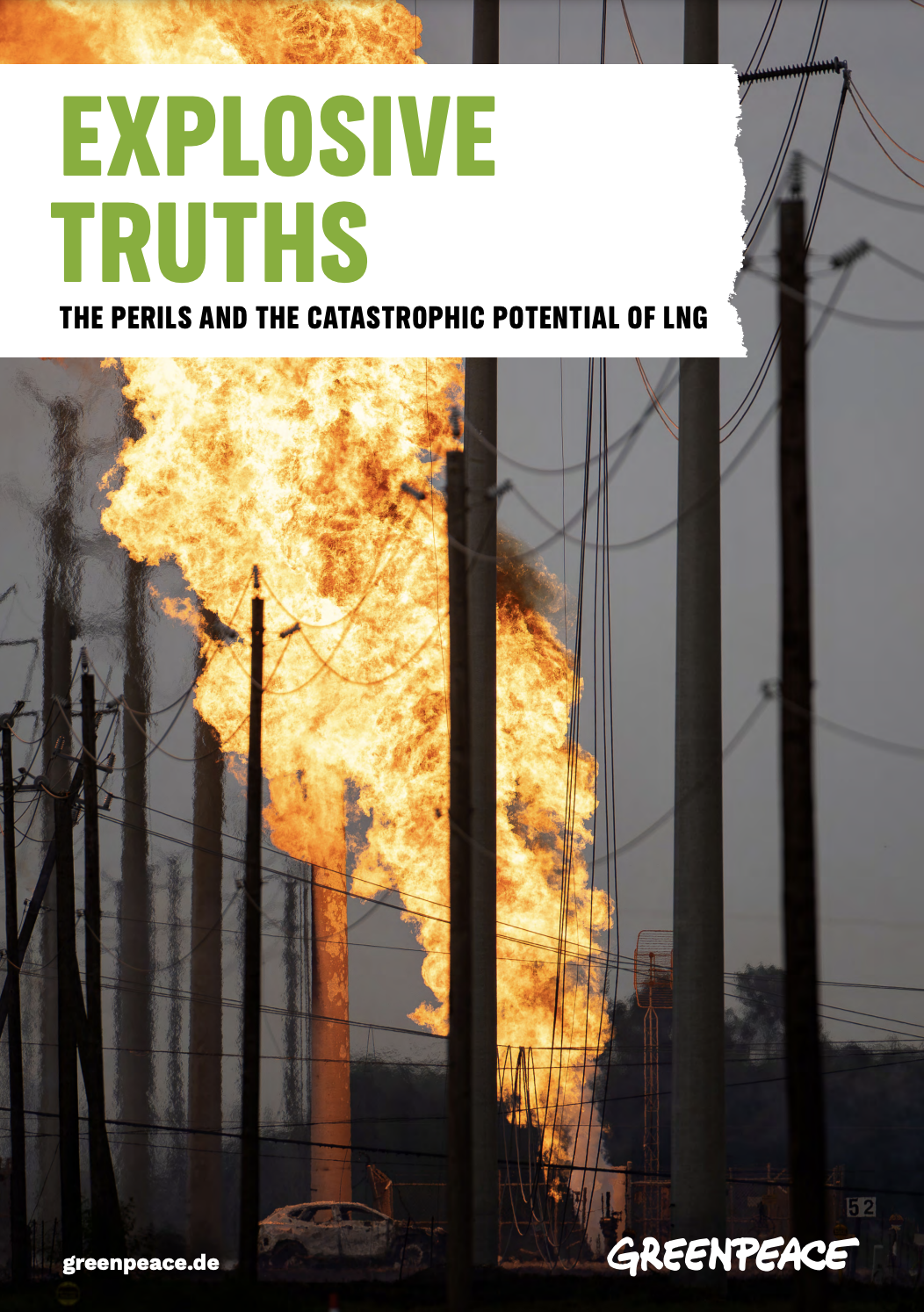In his early days as leader, John Key updated National’s position on Nuclear-Free New Zealand and distanced himself from his predecessor’s abhorrent “Orewa Speech”, setting a new direction for the Party. Christopher Luxon now has a similar opportunity to shape the direction of the National Party by committing to act meaningfully on the pressing environmental challenges of our time, which are also issues that a majority of New Zealanders value and care about.
Now more than ever, we need strong leadership to protect the oceans, native biodiversity, freshwater and the global climate.
The vast majority of New Zealanders are concerned about the climate crisis, and their concerns are growing. The unprecedented ferocity of the monsoon rains in Pakistan and flooding and extreme weather we have witnessed recently across New Zealand bring the consequences of our destabilising climate closer to home. Support for political leadership to significantly reduce emissions continues to grow.
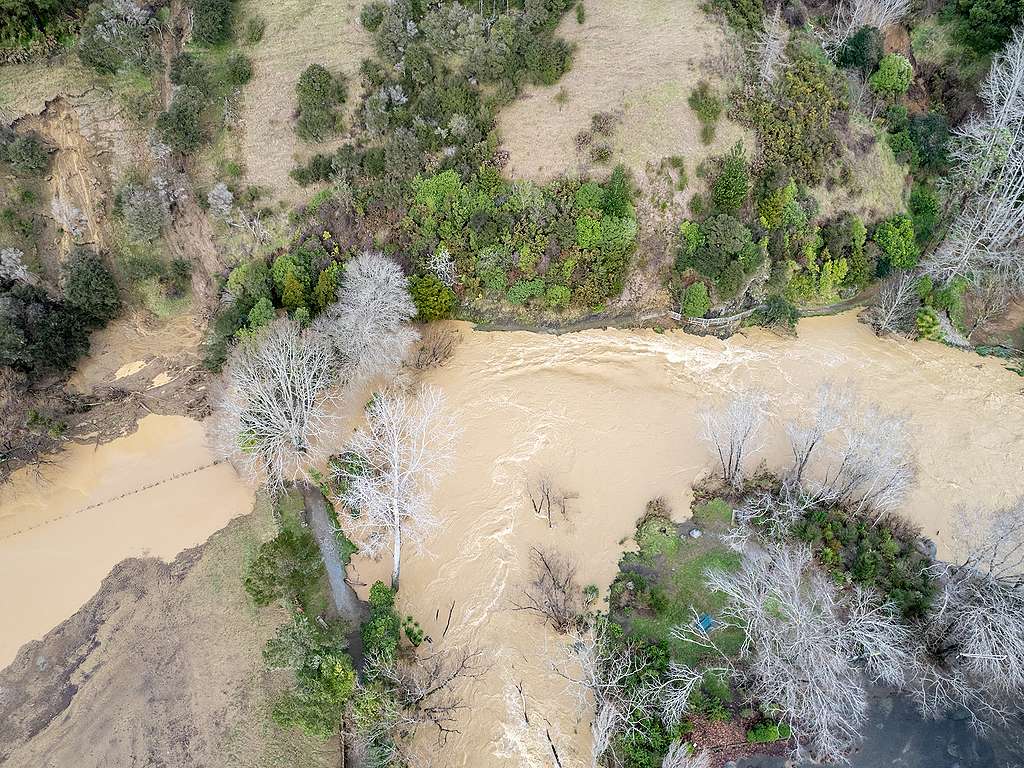
Climate change is the existential issue of our generation. Future historians will mark the courage of leaders today by their willingness to do what needed to be done to ensure a liveable planet. The science of climate change is very clear – we need to significantly reduce gross emissions of all greenhouse gases. If humanity is to succeed, every nation, however large or small, must play its part.
Which brings us to the question of New Zealand’s ban on new offshore oil and gas exploration permits. It has long been understood that we cannot afford to burn most of the fossil fuels currently held in reserves, let alone search for more if we are to avoid catastrophic climate change. Even the conservative International Energy Agency says that global oil and gas exploration should end immediately if countries are to successfully reach net-zero by 2050 and keep planetary temperatures to 1.5C.
“There is no need for investment in new fossil fuel supply in our net zero pathway. Beyond projects already committed as of 2021, there are no new oil and gas fields approved for development in our pathway, and no new coal mines or mine extensions are required. The unwavering policy focus on climate change in the net zero pathway results in a sharp decline in fossil fuel demand, meaning that the focus for oil and gas producers switches entirely to output – and emissions reductions – from the operation of existing assets.”
To National’s credit, it has committed to this 1.5C goal by supporting the Zero Carbon Act, even if the Zero Carbon Act commitment is purely aspirational and not binding.
However, if Luxon as National leader was to reassert the commitment of his predecessors and carry through with his intention to bring back oil and gas exploration, this would put the party in reverse by directly contradicting climate science and taking the world away from the possibility of staying under 1.5C of global heating.
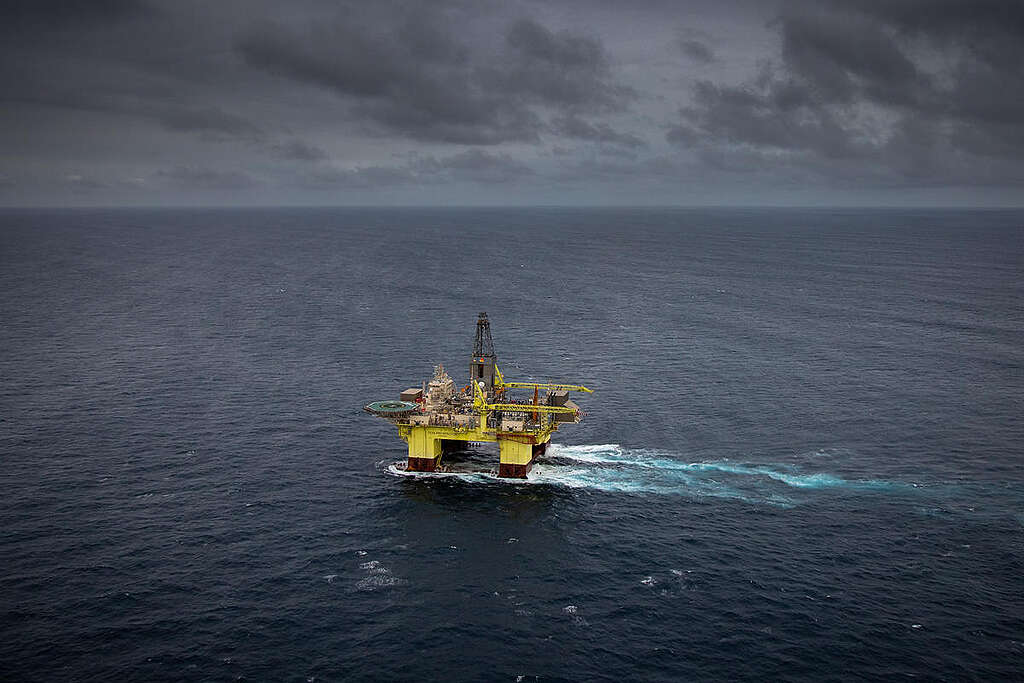
Sign the open letter to the oil industry – We will resist oil exploration
Sign onOil and gas exploration in 2022 is tantamount to climate denial
It would also put Luxon’s leadership in direct opposition to the New Zealand climate movement and the many hapū and iwi and everyday New Zealanders from around the country who fought for seven long years to achieve the ban.
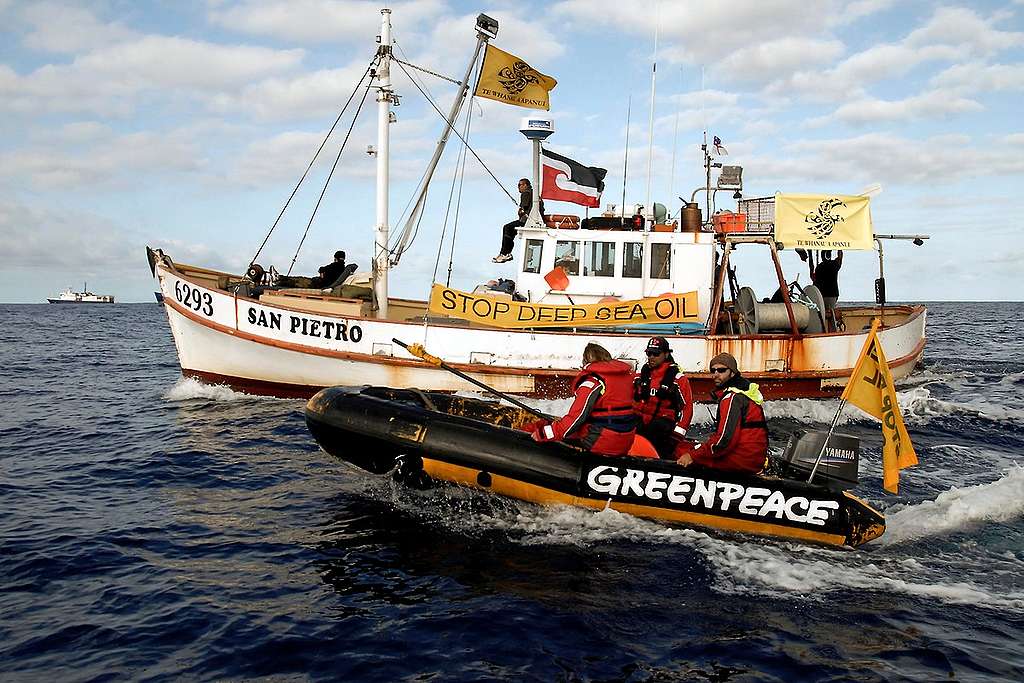
In affecting the end to new offshore oil and gas exploration permits, New Zealand became one of the first countries to lock away possible fossil fuels across a four million square kilometre area of the Earth’s crust – nearly our entire Exclusive Economic Zone. As a political action of global significance, the ban of oil exploration ships from our waters is comparable to our ban on nuclear ships, when the existential threat of nuclear war was the world’s primary concern.
On the other hand, to achieve success on climate change, we need a massive boost in renewable electricity generation. Bewilderingly, the current government has failed to support household solar, in spite of Transpower pointing to the need for significant distributed rooftop solar to decarbonise energy and enthusiasm from New Zealanders to generate their own power at home. As our Solarise New Zealand briefing paper outlines, there is a huge opportunity in solar, and New Zealanders are badly in need of a political leader who will finally realise this opportunity for homeowners and the climate.
While we face a multitude of climate-related issues (did I hear a cow!), Christoper Luxon now has a clear choice between two paths here – to either be a leader who backtracked on climate action and fought to bring back oil and gas exploration, or one who supported solarising our nation. To assist in this choice, I’d like to dispel some myths and further outline the case against re-awakening oil and gas.
Getting the facts straight on the offshore oil and gas exploration ban
Groups such as the fossil fuel lobby group Energy Resources Aotearoa (previously called PEPANZ) have attempted to connect the last years’ increase in coal used for power generation to the 2018 ban on new offshore oil and gas exploration. These claims do not have a basis in fact. Some key points:
- There is no gas shortage if existing reserves are allocated strategically – we have potentially decades of gas supply if we really need it,
- The combination of low lake levels (poor hydro conditions) and persistent maintenance issues at the Pohokura gas field saw coal use for electricity generation increase by 29.5 per cent in 2021. This was nothing to do with the oil and gas exploration ban and quite a lot to do with the unreliability of gas!
- The record level of coal burning we saw in 2021 was also a consequence of decades of under-investment in new renewables, combined with perverse incentives in the electricity market.
While the 2018 oil and gas exploration ban signalled a clear transition away from fossil fuels, which is exactly what the science of climate change compels us to do, it didn’t shut off existing reserves. In fact, by some estimates, we have gas supply from those reserves until 2061.
For the last three summers, Genesis Energy has been burning coal at Huntly in the middle of the day during sunny heatwaves. If our political leaders had realised the opportunity of solar, thousands of Kiwi households would have been generating power virtually for free during that time. Coal is the most expensive method of generating electricity. The way the wholesale electricity market is set up means that when the Huntly coal burners come on stream, all of the electricity generators get paid the highest price. There is a perverse incentive for the generator retailers to under-invest in renewables and keep burning coal, as witnessed by the bloated profits we’ve seen from Genesis, Meridian and the other large generator-retailers off the back of more coal being burned. There is currently a political gap: New Zealand homeowners want to be able to make their own energy independently of the large power companies. The next Government, regardless of its political party makeup, could step in and realise that ambition with an interest-free loan for household solar and batteries, as per our briefing.
Nor does the offshore oil and gas exploration ban have any bearing on current prices at the petrol pump because all of New Zealand’s fossil fuels for transport is imported from overseas. It always has been. In fact, the billions spent on imported transport energy is a major burden on the New Zealand economy and a huge source of inflation in our economy. In the three months ended June 2022, the value of petroleum products imported added $2.2 billion to our current account deficit. While we depend on oil-powered transport, New Zealanders’ cost of mobility is forever at the mercy of volatile international oil markets. Transitioning to electric transport, powered using homegrown energy from New Zealand’s bountiful solar, wind and hydro resources, is an opportunity to increase energy security and resilience by becoming more self-sufficient in the face of growing global uncertainty while also cutting climate and air pollution, and the current account deficit and inflation. Even more so if that is matched with huge growth in public transport, cycling and walking.
As a final point, the offshore oil and gas programme was an expensive and unproductive investment that relied on intensive wooing of overseas explorers who would have owned and exported any fossil fuels found and paid New Zealand a nominal royalty for the privilege. Over a period of around a decade, at the height of government support for the program, and despite exploration efforts by multiple international corporations in risky deep sea prospects off the North and South Islands, there were no significant finds. Only in 2020 did OMV report a prospect in shallow water Taranaki, which has yet to be appraised. It would take large amounts of public money and political capital to affect and justify a resuscitation of the program with the likelihood of nominal returns to New Zealand. Even in the baldest financial terms, oil and gas exploration is a risky and poor investment for New Zealand – and contrary to our clean green reputation in a decarbonising world.
Meanwhile, New Zealanders have had to pay hundreds of millions of dollars to decommission the old oil fields of bankrupt oil companies.
To conclude, reversing the ban on new offshore oil and gas exploration would be bad for the climate, wouldn’t help New Zealand address its energy challenges and would communicate to New Zealanders that the National Party is embracing the climate denial policies of past leaders rather than Luxon’s own stated aspirations to be bold on climate.
Now more than ever, New Zealanders and the world need bold leadership on climate, no matter who is in Government.
[This article is based on a letter sent to Chris Luxon by Russel Norman in September 2022]

